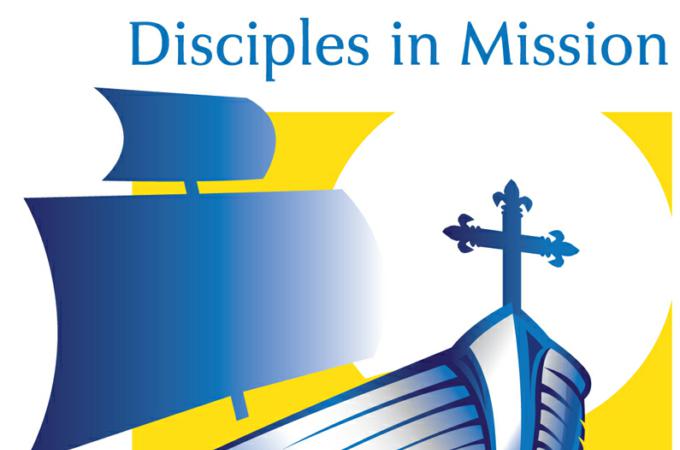Phase IV -- Developing a culture of planning
The Phase IV collaboratives are deep in the process of writing their local pastoral plans. They have been hard at work for several months writing a vision statement and goals they hope to achieve over the next three years. Before they began their writing, they spent time reviewing the responses of parishioners to the Disciple Maker Index (DMI) as well as scanning the environment of their parishes to evaluate where there were places that needed reenergizing or strengthening. Those two exercises have helped the writing teams get a clearer sense of where growth was needed and what potential goals might enable them to achieve this end.
The evangelization consultants from the archdiocese and the facilitators from the Catholic Leadership Institute work closely with the writing teams. They strongly encourage the writing teams to dream large and to see the plans they develop as an opportunity to put particular focus on the goal of making disciples. As with all the local plans that have been done by the previous collaboratives, each one has written a plan that is specific to their needs, their particular identity and culture. Of course, there are certain areas in many of the plans that are similar, yet they differ slightly from one another in what they hope to achieve. Having said that, let's take a look at what the drafts of the Phase IV plans offer for our reflection.
Each plan has a vision statement. These vision statements need to be both inspirational and attainable. They need to challenge parishioners to a deeper commitment of faith and help them to see the way forward. Some examples in the Phase IV plans are as follows:
-- "we embrace the call of Jesus to live our mission to 'Go forth and make disciples'"
-- "we aspire to be a community centered on the Eucharist"
-- "we will be actively engaged in works of charity, service and social justice"
-- "we will grow together as One Body of Christ"
--"we will maintain the enthusiasm of spreading the Good News"
-- "the exercise of our faith in Christ will manifest itself in righteous action and good works"
The "how to" goals that each collaborative decides on are tasks to achieve those vision statements. The goals in the plan describe specific areas of parish life that will be worked at during the next three years. Three of the writing teams have decided upon the topic of faith formation as one of their goals. While the topic is the same, each collaborative will work on a different aspect of faith formation. For example, one collaborative will focus on faith formation opportunities specifically for adults. This collaborative hopes to offer a variety of ways to attract parishioners to grow in their faith by offering programs such as retreats, study groups or workshops. Another Phase IV collaborative is putting the focus of their faith formation goal on the development of intentional disciples through the formation of small groups.
Other interesting goals that these collaboratives plan to work on are increasing Mass attendance by enhancing the experience of parishioners at the weekend Masses. In order to enrich peoples' experience at Mass, attention will be given to the homily, the music and the hospitality of the parish.
In every local plan vocations are given a priority. Some address this goal by developing a vocation team whose role is to promote vocations in a variety of ways, to the various age groups in a parish. Others include the goal of incorporating vocation education, discernment and support into parish life.
Once the local plans are completed, and the cardinal has approved them, the work of implementation begins. Applying the goals to parish life requires time and effort from every parishioner. Consistent prayer and participation are the most essential elements in being successful at living into the vision and implementing the goals that each collaborative sets for itself.
These vision statements and goals all articulate a hope of who we are called to be as baptized Catholics. Imagine what these Phase IV parishes will be like in three years having worked to fulfill their local pastoral plans! Doesn't that give you hope?
- Sister Pat Boyle is associate director of the Archdiocese of Boston’s Office of Pastoral Planning.



















